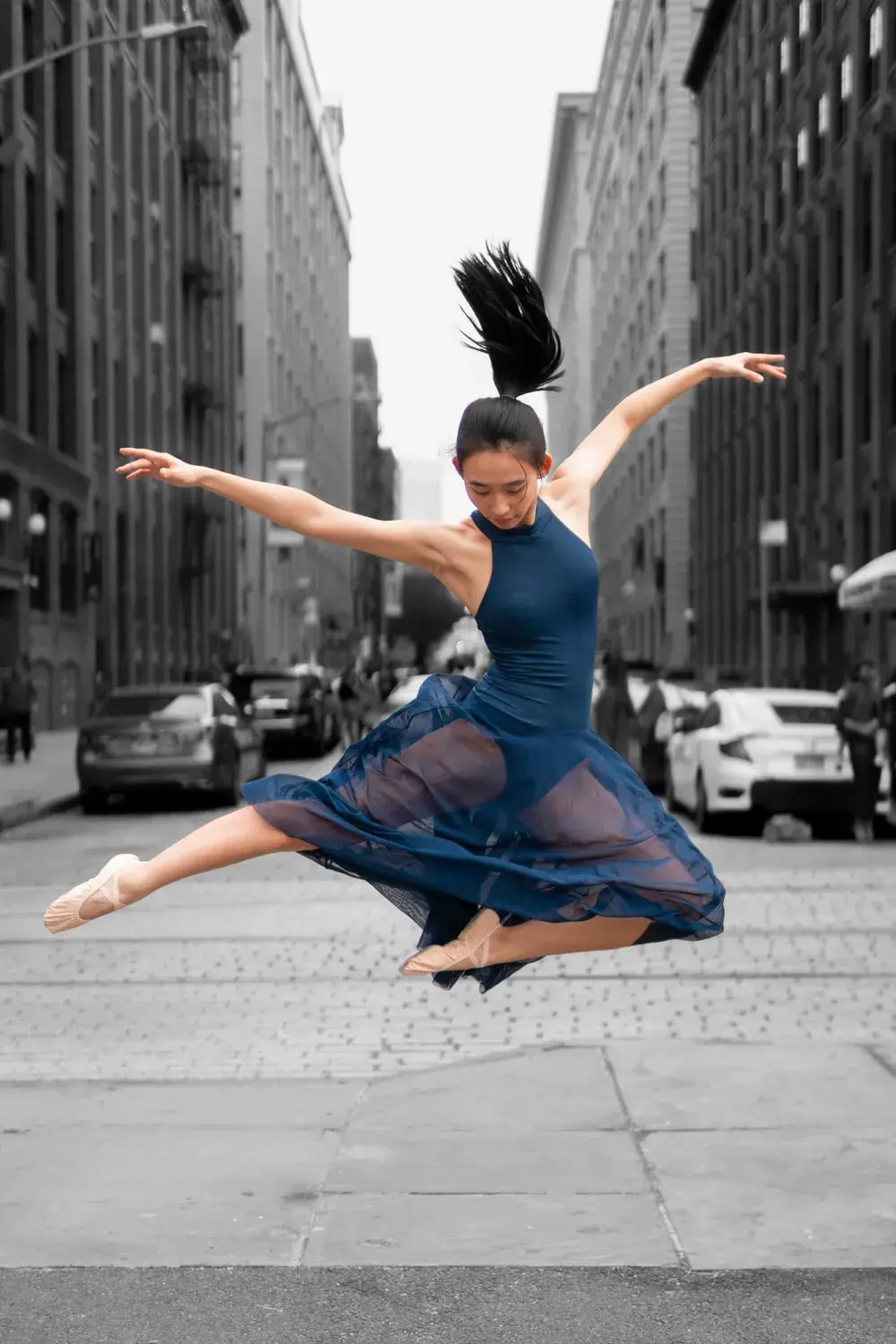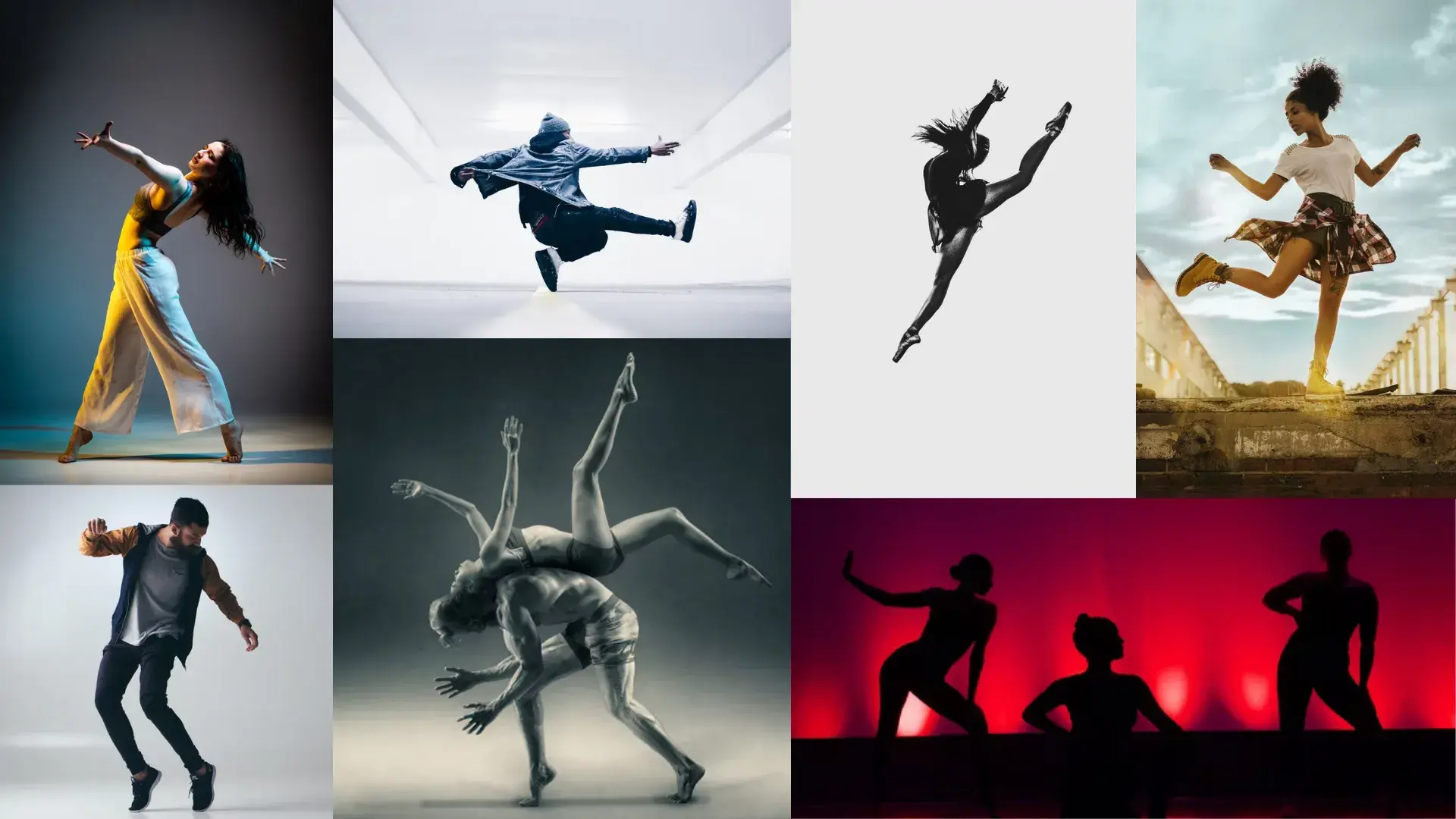Dancers
Dancers act either as solo artists or as members of an ensemble. As a dancer, you present yourself in a wide range of filming and performances, both in live events and in film and television . In order to interpret choreographies creatively, you slip into different roles. Dance techniques and dance styles from classical ballet to the most modern dance movements are in demand. Many dance forms are mixed on stage today, which means that dancers have to be fit in many different types of dance. In modern dance in particular, new movements are constantly being discovered, which always present dancers with new challenges. Dancers rehearse all the sequences of the production under the supervision of choreographers. They practise and train for several hours a day until they have internalised all the sequences and have perfect command of technique and expression.

What do dancers need to bring with them?
A dancer's greatest asset is his or her body. It is their instrument of expression. Dancers adhere to a strict training schedule to rehearse their dances and roles meticulously. There is often not much time for the body to recover between intensive rehearsals and strenuous performances. Anyone who has to cope with these exertions needs a healthy and strong organism. This is why many dancers invest extra time every day to stay fit through fitness, endurance and strength training. In addition, professional dancers generally pay strict attention to their diet. If you want to dance professionally and earn money with it, you need a solid and versatile dance education, talent and great commitment.

Where do dancers perform?
There are many different ways to perform as a dancer. For example, you can be the show attraction as a belly dancer, take part in a musical as a member of the ensemble or help organise a dance interlude in operas and operettas. As a stage dancer in dance theatres or as a backing dancer for well-known stars, you can showcase your skills to a large audience. Numerous highly committed competition dancers measure their talent in classical ballroom dancing against other dancers, for example in competitions and world championships. Producers for film and television also use dancers.

What do dancers earn?
Dancers usually work as freelancers. They are booked individually for each event. As a result, they have to constantly advertise for themselves and constantly try to get jobs in theatre, film or television on their own initiative. They often have several mainstays, for example as a choreographer or dance teacher. Some dancers also work for theatres or in ensembles on a contract basis. A dancer's income depends on their experience, ability and training. The size and popularity of the ensemble or organisation also play a role. As a rule, a group dancer in Germany today earns between €1800 and €3500 per month. Ensemble members sometimes earn even more than soloists.
Are you interested in working as a dancer? You can register online with starboxx at any time.
